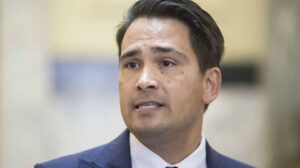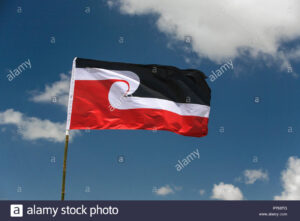And what they really mean
When Chris Hipkins became Prime Minister in January 2023, he announced a bonfire on proposed controversial government policies to focus on bread-and-butter issues and he toned down the rhetoric on co-governance. However, that did not mean the controversial aspects of co-governance had suddenly disappeared. Co-governance was simply going under the sheets to hide till after the October election.
What does co-governance mean? In an article by Minter Ellison Rudd Watt, they attempted to outline what co-governance means by interviewing Chris Finlayson, the ex-National minister who had extensive dealings with treaty settlements (Greg Campbell was also interviewed).
“On the surface, co-governance refers to a shared governance arrangement, with Treaty of Waitangi – Te Tiriti o Waitangi partners having equal seats around the table. Often mistakenly believed to be about the ownership of assets, it in fact refers to partnership in their governance. It is not a new topic, with iwi and Crown entities managing many rivers, lakes, and forests together under co-governance arrangements for a number of years”. (Minter Ellison Rudd Watt – 14 Dec 2022)
Minter Ellison loosely stated that:
“It has acquired new relevance through recent debates sparked by proposals for Māori wards in local councils, the creation of the Māori Health Authority, Te Aka Whai Ora, demands for a referendum, and of course as a key pillar of proposed plans for Three Waters Reform.” (Minter Ellison Rudd Watt – 14 Dec 2022)
Yet, “Finlayson says that co-governance cannot apply to all areas of government.
“Obvious examples of where co-governance would be hard to apply are national security and foreign affairs. It is also important to distinguish between co-governance and initiatives developed by this Government to deal with an issue, such as the Māori Health Authority, which I don’t regard as co-governance. The Māori Health Authority is an example of a government initiative to address health needs in the community. Whether it is a good idea is for the politicians to debate.” (Chris Finlayson – 14 Dec 2022 Minter Ellison Rudd Watt)
Finlayson adds:
“Getting a clear definition of co-governance is very important. People say co-governance should really be ‘co-management.’ The US Ambassador recently asked me if co-governance is similar to joint management arrangements. It is. I said it is not an opportunity to micromanage the officials work, but a chance to set priorities and to have a say in how to manage a resource.” (Chris Finlayson – 14 Dec 2022 Minter Ellison Rudd Watt)
Then he states that it is important to have a debate on what co-governance means. Sadly, this debate is being stifled by those who oppose any discussion or challenge to co-governance and what it means, and how it works. He rightly argues,
“I have high regard for the leader of the Act Party. David Seymour is perfectly within his rights to question the extension of co-governance without being labelled racist. It is contrary to free speech and contrary to the role of the Opposition which should be asking questions, and I find it highly offensive.” (Chris Finlayson – 14 Dec 2022 Minter Ellison Rudd Watt).
He furthers adds:
“Avoid labels,” says Finlayson. “And, secondly, try and look at the substance of what is happening and understand it. I think the quality of discussion is very shallow. It is important that people be allowed to question applications or extensions of co-governance principles to other areas, and they have to be able to do that without being labelled racist or ignorant. (Chris Finlayson – 14 Dec, 2022 Minter Ellison Rudd Watt)
Ben Thomas wrote in the Dominion Post, that co-governance can work in a local area, like Auckland’s volcanic cones where the property title was transferred to the Tamaki Collective of 12 iwi, “and governed by an authority whose members were half appointed by council and half from the collective…As with much in the treaty space, it is a comprise agreement: allowing for the exercise of rangatiratanga while also recognising the Crown’s (right to govern) and the public good of these precious natural resources” (Ben Thomas, Dominion Post).
“The key feature in practice of co-governance arrangement is that some of the governance body are appointed by the Crown or its representatives, and some by Māori through their traditional authority, such as iwi. The split will be 50/50.
“The model could be more widely used, but it starts to lose coherence outside the context of traditional geographical boundaries. (Ben Thomas, Dominion Post)
Thomas summarises this problem as,
“The argument is not about ‘co-governance’ but whether or not this extra piece of bureaucracy will achieve anything. That is a question of bureaucratic design, not race.” (Ben Thomas, Dominion Post)
In essence, both Finlayson and Thomas are arguing for the localisation of co-governance arrangements, or “co-management.” However, Labour has taken co-governance to another level by embedding it into major government policies that morph into the national policy on major infrastructure arrangements, such as Three Waters, something that I believe is outside treaty arrangements. Not only is co-governance being implemented on infrastructure issues that affect all of us in major ways, but Labour is also inserting “Te Mana o te Wai statements” in the Three Waters legislation that breach the principles of democracy, and even co-governance itself.
As Graham Adams outlines in his article, “What Hipkins doesn’t want to tell us about Three Waters,”
“…the importance of this overarching co-governance set-up is eclipsed further down the chain of command by rights granted to iwi and hapū to issue Te Mana o te Wai statements…“Each iwi and hapū [in their local territory] … would have the right to issue ‘statements’ to which the [Water Services Entity] would be legally obliged to respond. These, directives in effect, are called ‘Te Mana o te Wai statements, a phrase not clearly defined but it is the governing principle of the legislation.” (Graham Adams – What Hipkins doesn’t want to tell us about Three Waters – 6 April 2023 – reference to columnist John Roughan of the NZ Herald)
“In fact, Te Mana o te Wai statements aren’t an example of co-governance and shouldn’t be confused with it. They are edicts that hand direct control over water to iwi. (Graham Adams – What Hipkins doesn’t want to tell us about Three Waters – 6 April 2023)
“Te Mana o te Wai statements kick in at the operational level and they give Māori an awful lot of power. So much, in fact, that the pseudonymous political analyst Thomas Cranmer has described the “unbridled power” they hand to iwi and hapū as “mind-boggling.” (Graham Adams – What Hipkins doesn’t want to tell us about Three Waters – 6 April 2023)
‘One astonishing feature is their vast scope. They can include anything from promoting Māori employment and environmental protections to spiritual concerns and investment decisions. Even more astonishing is the fact that only iwi and hapū can issue them. (Graham Adams – What Hipkins doesn’t want to tell us about Three Waters – 6 April 2023)
‘There has been some debate over whether the statements are binding on the four Water Services Entities or merely constitute advice. In his column, John Roughan didn’t go further than saying that the WSEs would be “legally obliged to respond” to them. However, Kate MacNamara noted in February that, “under legislation passed late last year the WSEs must ‘give effect to’ all of these statements”. (Graham Adams – What Hipkins doesn’t want to tell us about Three Waters – 6 April 2023)
‘The minister at the time, Nania “Mahuta herself made her position clear in Parliament that the statements are binding on the four Water Services Entities. During the first reading of the Water Services Entities Bill on 9 June 2022, she said: “The bill contains robust mechanisms to provide for and promote iwi Māori rights and interests. Mana whenua whose rohe or takiwā [tribal area] includes a freshwater body can make a Te Mana o te Wai statement for water services which the board must give effect to.” (Graham Adams – What Hipkins doesn’t want to tell us about Three Waters – 6 April 2023)
‘It is not difficult to imagine, of course, why McAnulty — and Hipkins — would prefer Te Mana o te Wai statements not to be discussed publicly. As former Kaipara mayor Dr Jason Smith put it forthrightly last June on Twitter: “Whoever gets to write Te Mana o te Wai statements gets control of water, land, planning rules and regulations, land use… TMoTW statements will cover every pipe, river, creek, farm pond or fresh water body. Actively excluding around 85 per cent of New Zealand’s people from engaging in a process which affects everyone/every square inch of the land and the salt water many miles out to sea deserves closer examination.
“If Te Mana o te Wai is such an important principle then surely everyone (ngā tāngata katoa) should be able to be involved. So many parts of society actively excluded from participating is unacceptable and unjustifiable.” (Graham Adams – What Hipkins doesn’t want to tell us about Three Waters – 6 April 2023)
In essence, Adams is arguing that this government has taken co-governance from being a localised form of management that meets the terms of the treaty, to one that becomes embedded in government policy with dangerously undemocratic principles that will exclude 85% of the population from how our water resources will be managed. It is a dangerous precedent that will have long term ramifications for this country. Once democratic control is lost, it will be extremely hard to get it back. Sadly, both mainstream media and the public remain blindly ignorant to this fact.


